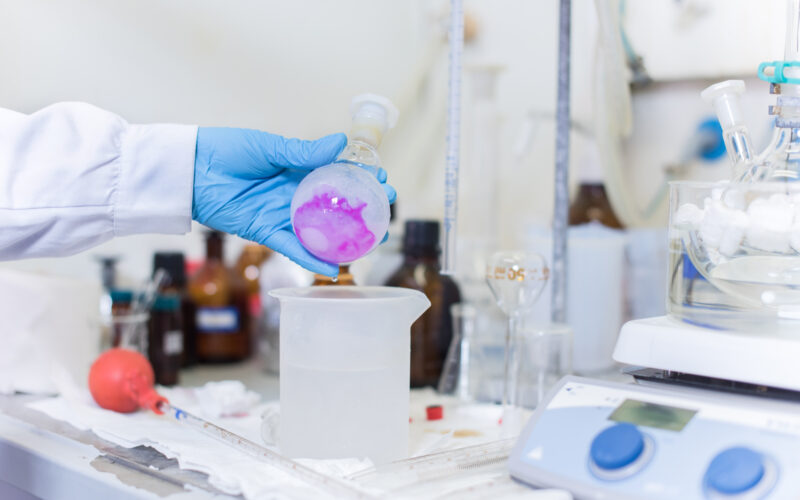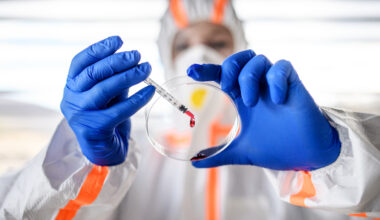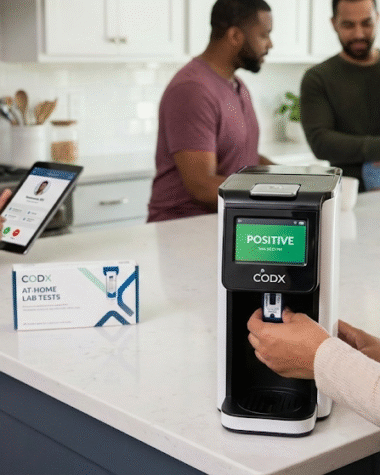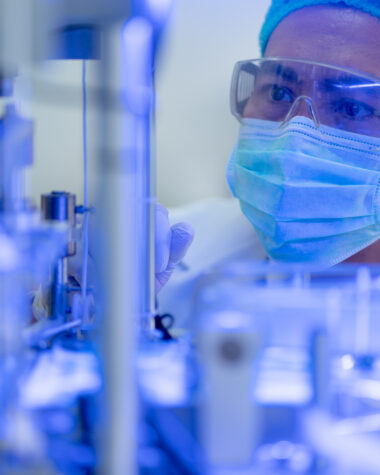Regeneron Pharmaceuticals, Inc. (NASDAQ:REGN) is one of the most prominent biotechnology companies in the world, renowned for its deep expertise in translating cutting-edge science into life-changing medicines. Founded in 1988 by Leonard Schleifer, M.D., Ph.D., and George Yancopoulos, M.D., Ph.D., Regeneron began as a small biotech venture in New York with a vision to combine rigorous scientific discovery with rapid clinical application. Over nearly four decades, it has evolved into a global leader in genetic research, monoclonal antibody development, and large-scale biologics manufacturing. The company’s success is rooted in its pioneering approach to science—particularly its integration of genetics, immunology, and artificial intelligence to accelerate drug discovery across multiple therapeutic areas.
From the beginning, Regeneron established itself as a science-first organization, maintaining one of the largest internal research teams in the biotechnology industry. Its innovation model centers on proprietary technology platforms such as VelociSuite®, which includes VelocImmune®, a groundbreaking genetic engineering system that enables the development of fully human monoclonal antibodies. This technology has become the cornerstone of Regeneron’s pipeline, fueling a diverse range of therapies that target complex diseases in ophthalmology, oncology, immunology, cardiovascular medicine, and rare disorders. Regeneron’s discovery capabilities are enhanced by its Regeneron Genetics Center®, one of the largest human genetics research efforts in the world, which integrates genomic data from millions of individuals to identify novel therapeutic targets.
Regeneron first rose to global prominence with EYLEA® (aflibercept), a treatment for wet age-related macular degeneration and diabetic eye disease that revolutionized retinal care. The drug quickly became a blockbuster, generating billions in annual revenue and establishing Regeneron as a commercial force in ophthalmology. Beyond EYLEA, the company has built a robust portfolio of approved medicines that include Dupixent®, developed in partnership with Sanofi, which has become one of the world’s top-selling immunology drugs for conditions such as atopic dermatitis, asthma, and chronic rhinosinusitis with nasal polyps. These successes underscore Regeneron’s ability to scale scientific discovery into global healthcare impact.
In oncology, Regeneron continues to expand its reach through Libtayo® (cemiplimab), its anti–PD-1 immunotherapy that has received FDA approval across multiple indications, including advanced cutaneous squamous cell carcinoma, basal cell carcinoma, and non-small cell lung cancer. The company’s ongoing efforts in immuno-oncology reflect its strategic focus on building a sustainable growth engine beyond its ophthalmology and immunology franchises. Regeneron’s research pipeline now includes dozens of clinical programs, ranging from next-generation antibody-drug conjugates and bispecific antibodies to gene editing and RNA-based therapeutics.
Regeneron’s role in combating the COVID-19 pandemic further solidified its reputation as one of the most agile and scientifically capable biotech companies in the world. Its REGEN-COV® antibody cocktail, developed in record time, received global emergency authorizations and was widely used for treatment and prevention during the height of the pandemic. The rapid development and distribution of REGEN-COV showcased Regeneron’s ability to respond to global health crises while maintaining high manufacturing and regulatory standards.
Financially, Regeneron remains one of the strongest and most profitable biopharma companies in the United States. The company’s revenues have exceeded $13 billion annually, supported by multiple blockbuster therapies and a robust research collaboration model. It maintains a disciplined approach to capital allocation, reinvesting heavily in R&D to sustain long-term innovation while preserving a solid balance sheet. This financial strength allows Regeneron to pursue strategic partnerships and acquisitions, such as its alliance with Alnylam Pharmaceuticals for RNA interference therapies and recent collaborations in genetic medicine and cell therapy.
What truly distinguishes Regeneron is its culture of scientific excellence and its long-term commitment to internal discovery. Unlike many large pharmaceutical peers that rely heavily on acquisitions, Regeneron continues to derive most of its pipeline innovations from its own laboratories. Its leadership team, still guided by its original founders, maintains a steadfast belief that great science drives sustainable success. This philosophy has made Regeneron one of the most consistently innovative and profitable companies in the biotechnology sector.
Today, Regeneron stands at the forefront of precision medicine, leveraging genetics, data science, and advanced biologics to redefine how diseases are treated and prevented. With multiple FDA-approved therapies, an expanding global footprint, and a research engine capable of generating breakthrough discoveries across therapeutic categories, Regeneron remains one of the most influential biopharmaceutical innovators of the 21st century.
Regeneron’s Regulatory Win Meets a Market Reality Check
Regeneron Pharmaceuticals, Inc. (NASDAQ: REGN) experienced a surprising downturn even as it secured one of its most important regulatory victories of 2025. The U.S. Food and Drug Administration granted full approval for Libtayo as an adjuvant treatment for adults with cutaneous squamous cell carcinoma (CSCC) at high risk of recurrence. Despite this breakthrough, Regeneron’s stock fell 3.32% to $563.86, briefly recovering to $566.00 in after-hours trading, suggesting that Wall Street may be looking beyond the headlines. The muted market response highlights a growing disconnect between Regeneron’s scientific milestones and investor sentiment — a sign that the biotech giant may be approaching a period of slower momentum.
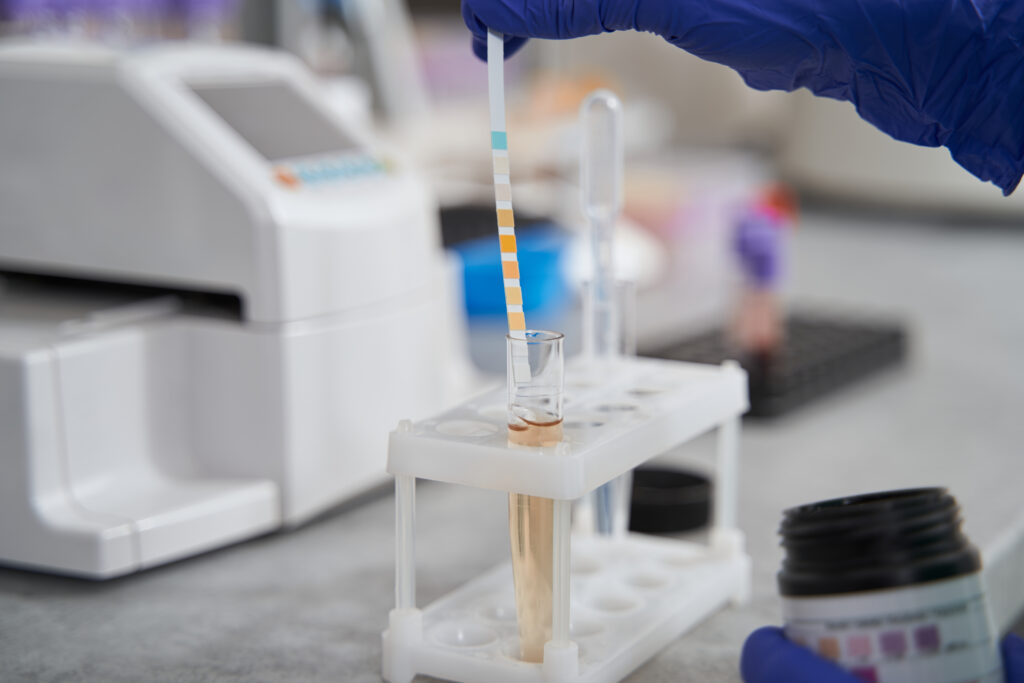
CHECK THIS OUT: Tiziana (TLSA) Surges 143% in 2025 and Immuneering (IMRX) Reports 86% 9-Month Survival in Pancreatic Cancer.
A Breakthrough Approval That Failed to Rally Investors
The FDA’s greenlight for Libtayo represents a milestone moment in oncology. The approval, based on the pivotal Phase 3 C-POST trial, confirmed that the therapy reduced the risk of recurrence or death by 68% compared to placebo in patients who had already undergone surgery and radiation. Published in the New England Journal of Medicine and showcased at the 2025 ASCO Annual Meeting, the results solidified Libtayo’s position as the first and only immunotherapy approved for adjuvant use in CSCC. From a clinical standpoint, this should have been a moment of triumph. Yet, the market’s reaction — a notable intraday selloff — suggests growing skepticism about Regeneron’s valuation and near-term growth drivers.
Some analysts attributed the decline to profit-taking after strong prior gains, while others pointed to sector-wide weakness in biotech. However, the deeper issue may lie in the company’s overreliance on mature franchises and the increasing competition in its immuno-oncology and ophthalmology segments. Investors appear to be questioning whether Libtayo’s incremental approvals are enough to offset looming headwinds across Regeneron’s broader portfolio.
Libtayo’s Expanding Role Amid Competitive Pressures
Libtayo’s newly approved indication expands its FDA footprint to five total approvals, reinforcing its importance to Regeneron’s oncology ambitions. The company has aggressively built out its immunotherapy pipeline and patient support initiatives, including Libtayo Surround™, which provides educational and financial assistance to eligible patients. Nevertheless, while Libtayo’s expansion into high-risk CSCC adds value, it competes in a crowded PD-1 inhibitor landscape dominated by Merck’s Keytruda and Bristol Myers Squibb’s Opdivo. These established giants already command vast commercial reach, deep physician familiarity, and entrenched market share.
In that context, Libtayo’s incremental approvals may not generate the revenue growth that investors once expected. Even as Regeneron deepens its foothold in oncology, questions remain about the sustainability of growth in a segment where price competition and payer scrutiny are intensifying. Moreover, with ongoing regulatory review still pending in the European Union, the commercial payoff from this approval may not materialize until late 2026.
Underlying Weakness: Market Dependence and Investor Fatigue
Regeneron’s recent performance reveals signs of market fatigue. Despite a string of positive clinical milestones, the company’s share price has remained under pressure due to concerns over slowing EYLEA sales, margin compression, and rising R&D expenses. Its flagship ophthalmology drug, even with the launch of EYLEA HD, faces fierce competition from Roche’s Vabysmo, which continues to erode market share. Investors seem unconvinced that new approvals like Libtayo’s adjuvant indication can fully offset these losses or restore high-double-digit earnings growth.
Adding to the concern is the perception that Regeneron’s growth story may be entering a maturity phase. The company’s diversification efforts into oncology and immunology, while commendable, may not be enough to replace the revenue once dominated by EYLEA. Analysts also point out that valuation has little buffer for disappointment, especially after years of multiple expansion driven by optimism in Regeneron’s pipeline.
The Sentiment Disconnect
In theory, an FDA approval should serve as a powerful catalyst — particularly one as meaningful as Libtayo’s in high-risk skin cancer. But the market’s subdued response suggests a growing disconnect between scientific progress and investor enthusiasm. Wall Street’s muted reaction signals that even strong data and regulatory wins no longer guarantee upward momentum for large-cap biotech names like Regeneron. This shift underscores a broader trend: investors now demand tangible commercial traction, not just clinical promise.
The stock’s decline following the FDA news — despite the positive medical breakthrough — reveals that expectations may have already been priced in. Regeneron’s challenge moving forward is to convert its clinical leadership into sustainable earnings growth that can reenergize investor confidence. Until then, even milestone approvals may continue to meet with short-term skepticism.
Conclusion: Strong Science, Shaky Sentiment
Regeneron Pharmaceuticals remains one of biotech’s most respected names, with an R&D engine that consistently produces high-quality therapies. Yet the bearish argument lies in the mismatch between its pipeline strength and its market performance. Libtayo’s approval in adjuvant CSCC should be a clear win, but the accompanying 3% stock dip exposes a deeper truth — investors are demanding more proof of long-term revenue growth before rewarding the stock.
The company’s dependence on aging franchises, intensifying competitive pressure in immuno-oncology, and high valuation levels all combine to limit short-term upside. While Regeneron’s science continues to advance, its stock may struggle to break out until investors see clear evidence that new approvals can meaningfully accelerate growth beyond current expectations. In the near term, Libtayo’s success story may strengthen Regeneron’s reputation in medicine — but not necessarily its position on Wall Street.
READ ALSO: Saudi Arabia Wants CEL-SCI (CVM)’s Multikine Now! and Aligos Therapeutics (ALGS) Doubles Cash to $122.9M.
